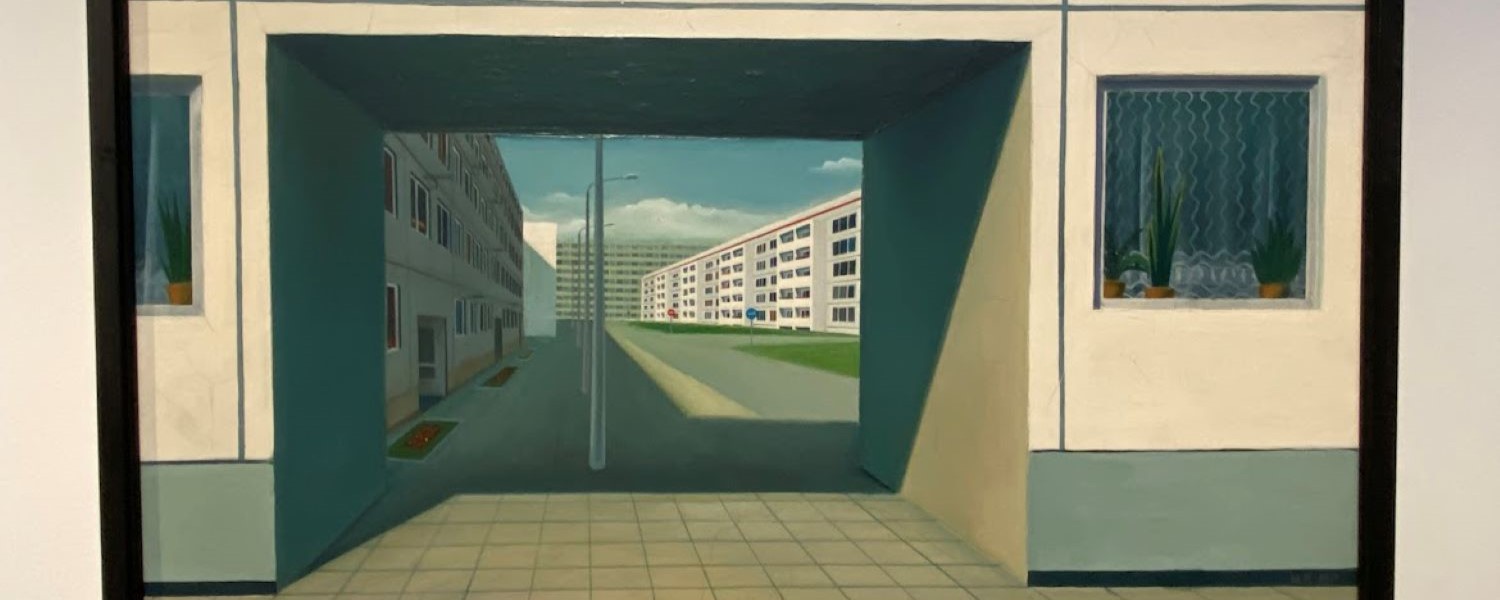
Last month, the Intergovernmental Panel on Climate Change (IPCC) released their landmark report on the current state of the climate crisis, setting out the already devastating impacts of climate change and warning of what is to come as global heating rapidly accelerates and climate disasters become increasingly frequent.
The message is clear that to avoid the worst environmental, social, and economic consequences of climate change and to protect humanity, all governments and sectors must act radically, and everyone has a part to play. A recent talk by Bridget McKenzie, Founding Director of Climate Museum UK (as part of the 2021 CILIPS Annual Conference) considered the role of the cultural sector in responding to the climate emergency, and advocated for the importance of creativity in fostering climate engagement and moving towards a more sustainable world.
Creative conversations
Climate Museum UK is a mobile and digital museum delivering workshops and collecting public responses relating to the climate emergency. When it comes to engaging the public with the climate crisis, according to Bridget McKenzie, a level of positivity is key to help people feel empowered and able to act, and a creative approach to climate conversations is crucial to this.
Workshops and resources which encourage the production of art, games, stories and ideas relating to the climate crisis can help people to think openly and imaginatively about the future, and address the social consequences of the climate crisis by giving people space to express and process their thoughts, build community connections, and find common ground from which innovative ideas can develop.
Arts and cultural institutions therefore have a vital role to play in facilitating creative thinking. Libraries, museums, theatres, and other cultural and heritage organisations are already valuable places for people to come together, share ideas, and promote change, so they are well-positioned to be spaces for creative climate conversations and to contribute to the development of a sustainable future. Furthermore, as McKenzie suggests, cultural institutions like libraries and museums have a role to play in preserving histories of the climate crisis and helping people to discover and make sense of them.
How are the arts and cultural sectors responding?
There is growing recognition within the arts and cultural sectors about the urgency of the climate crisis and opportunities for change. Culture Declares Emergency is a movement of individuals and organisations in the sector who have declared a climate and ecological emergency, and are working to develop solutions and advocate for the value of culture in sustainable development.
Julie’s Bicycle is a UK-based charity working with organisations to deliver programmes and policy change to help the sector gain momentum in tackling the climate crisis. According to Julie’s Bicycle, ‘the climate crisis is a cultural crisis’, and addressing the climate issues creatively can create a sustainable cultural economy. They have identified seven trends in creative climate leadership to leverage new value for the sector and move towards sustainability.
Cultural and arts organisations have responded with events, performances and exhibitions which deal directly with climate issues. In Glasgow, an exhibition has been launched at the Science Centre which presents creative ideas and responses to the climate emergency from museums across the world. It is based on the idea that museums should be a trusted source of information on climate issues while also inspiring ideas about change. It is intended to run up until the COP26 meeting in Glasgow in November, to promote public awareness of the climate emergency ahead of the conference.
In the library sector, there is increasing discussion about how libraries can respond to the climate crisis and support users and communities while working across the rest of the cultural sector to generate practical change. CILIPS (representing Scotland’s library and information professionals) have launched a #CILIPSGoGreen campaign, creating a bank of environmental resources for library and information professionals to support decision-making and practice.

How are the UK’s Arts Councils responding?
In 2012, Arts Council England (ACE) teamed up with Julie’s Bicycle to develop a new environmental policy for the England’s arts sector. This has since required all ACE funded organisations to report their environmental data and submit an environmental action plan annually. In 2020, ACE reported that arts and cultural organisations were making increasingly sustainable energy choices, and the theme of climate and sustainability was increasingly present in creative work, raising awareness among audiences and facilitating valuable conversations.
Creative Scotland are in the process of developing a new and comprehensive climate and sustainability plan, led by Creative Carbon Scotland. The plan will be developed with experts in fields such as carbon reduction, sustainability, adaptation, and cultural practice, and is intended to focus on increasing inclusivity and engagement with climate issues through arts and culture.
Creative Scotland are also supporting creative initiatives relating to COP26, for example the Climate Beacons project which gathers resources from cultural and climate organisations and provides a space for discussion between artists, climate scientists, the public, and policymakers.
Arts Council of Wales recently made an open call for creative practitioners to develop projects to encourage bilingual communities across Wales to share their ideas and experiences around the climate crisis and think about how to mitigate its impact.
What next?
A 2019 report by the World Cities Culture Forum highlights trends in good practice for cities tackling climate change through culture. The report emphasises the importance of connecting cultural and environmental policy and recommends increased monitoring and reporting on the environmental impact data of cultural activities.
Similarly, a 2020 report by the Local Government Association (LGA) highlights the importance of environmental considerations in developing place-based cultural strategies. The report looks at Exeter as a case study, considering the city’s efforts to develop cultural practices and creative spaces that encourage increased interaction with the environment, to increase climate engagement.
Clearly, the value of culture and creativity in thinking about and responding to the climate crisis is being recognised and harnessed. However, as Climate Museum UK highlight, public arts funding remains low, and resources are stretched. For significant and tangible change to be fully realised, and for ideas to be translated into practice, investment and support is required at all levels.
Further reading: more from The Knowledge Exchange blog on the arts and culture:
Share
Related Posts
Supporting residents on the decarbonisation journey: leveraging data for effective retrofit projects
As the drive towards decarbonisation intensifies, the social housing sector’s ability to collect, store and manage vast amounts of data becomes increasingly critical. With a shared goal of creating warmer, carbon-free homes, housing associations’ strategic use of data is essential ....
The recent spikes in energy costs have thrown into sharp focus the challenge of heating our homes. Domestic heating is important, not just for our comfort and wellbeing, but to reduce humidity and prevent condensation. But because traditional heating systems ....
Tackling geographical inequalities is critical for ensuring that all parts of the country have the potential to prosper. When the UK was a member of the European Union, it was entitled to a share of funding from the EU’s structural ....

